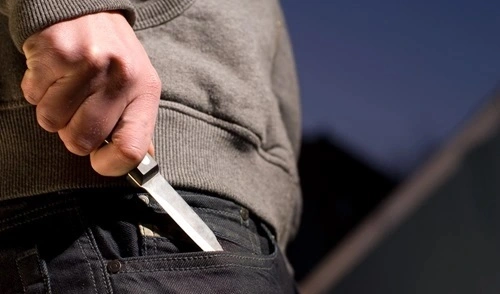Yes, it can be illegal for individuals under 18 to carry certain types of knives, depending on the state, local laws, and the circumstances in which the knife is carried. While some knives are considered tools and are generally permissible, many states impose restrictions on minors carrying knives, particularly those classified as weapons.
Understanding Knife Laws for Minors in the United States
Knife laws in the U.S. are governed by a mix of federal, state, and local regulations. While federal laws primarily regulate the importation and interstate transportation of certain knives, most rules about carrying knives, especially for minors, are established at the state and local levels.
1. Federal Laws
Federal law does not explicitly prohibit minors from carrying knives. However, certain knives, such as ballistic knives and switchblades, are regulated under the Federal Switchblade Act (15 U.S.C. § 1241-1245). Minors may face restrictions on possessing or carrying these knives, especially across state lines.
2. State and Local Laws Governing Knives for Minors
State laws vary significantly in how they regulate knife possession for individuals under 18. Here are some key considerations:
Types of Knives
- Pocket Knives: Most states allow minors to carry small pocket knives (blades typically under 2.5–3 inches) as they are often considered tools rather than weapons.
- Fixed-Blade Knives: Fixed-blade knives, such as hunting or combat knives, are more likely to be regulated for minors, especially when carried in public.
- Switchblades, Daggers, and Ballistic Knives: Many states prohibit minors from possessing these types of knives entirely due to their classification as weapons.
Intent and Circumstances
- Carrying a knife for legitimate purposes, such as work, hunting, or camping, is often permissible, even for those under 18.
- Carrying a knife with intent to harm or intimidate others is illegal and may result in criminal charges, regardless of the individual’s age.
Notable State Examples
- California: Minors can legally carry folding pocket knives as long as the blade is not exposed. Carrying a concealed fixed-blade knife, however, is prohibited, even for minors.
- Texas: Knives with blades over 5.5 inches are considered “location-restricted knives” and cannot be carried in certain places (e.g., schools, churches) by anyone, including minors.
- New York: Minors are prohibited from carrying gravity knives or switchblades and can face penalties if caught carrying knives classified as weapons.
3. School and Restricted Areas
Carrying knives in certain locations, such as schools, is strictly prohibited for individuals of any age under both state and federal laws:
- Gun-Free School Zones Act (1990): While primarily addressing firearms, this federal law includes restrictions on other weapons, including knives, within school zones.
- State-specific laws often ban all knives, including pocket knives, on school property or at school-sponsored events.
Legal Consequences for Minors Carrying Knives
1. Misdemeanors and Felonies
Minors caught illegally carrying a knife may face misdemeanor charges, which could escalate to felonies if the knife is used in the commission of a crime.
2. Confiscation and Penalties
Law enforcement may confiscate the knife and impose fines or community service requirements on the minor or their parents.
3. School Disciplinary Actions
Bringing a knife to school can lead to suspension, expulsion, or referral to juvenile court.
Recent Legal Updates and Trends
1. Clarity on Pocket Knives
States like Colorado and Massachusetts have recently updated their knife laws to clarify that small pocket knives are not considered weapons, making it easier for minors to carry them for legitimate purposes.
2. Increased Focus on School Safety
Following incidents involving knives on school campuses, states like Florida and Illinois have imposed stricter penalties for carrying any knife on school grounds, even for minors.
3. Advocacy for Clearer Laws
Knife rights advocacy groups are pushing for clearer legislation distinguishing between knives carried as tools versus weapons to prevent criminalizing minors unnecessarily.
FAQs About Minors Carrying Knives
Q1. Is it legal for a minor to carry a knife for camping or hunting?
Ans: Yes, in most states, minors can carry knives for legitimate activities like camping or hunting. However, the knife must generally be used responsibly and not in restricted areas.
Q2. Can a minor carry a pocket knife?
Ans: Yes, pocket knives with small blades are usually legal for minors to carry, as they are often classified as tools rather than weapons. State and local laws may vary.
Q3. What happens if a minor brings a knife to school?
Ans: Bringing a knife to school is typically illegal under state and federal laws and can result in suspension, expulsion, or legal charges.
Q4. Are there restrictions on the size of knives minors can carry?
Ans: Yes, many states limit the blade length minors can carry, often around 2.5–3 inches for folding knives. Larger knives may require specific justifications, such as hunting or work.
Q5. Can a minor be charged for carrying a knife in public?
Ans: Yes, if the knife is carried in a threatening manner, concealed without proper authorization, or in a restricted area, a minor can face criminal charges.

